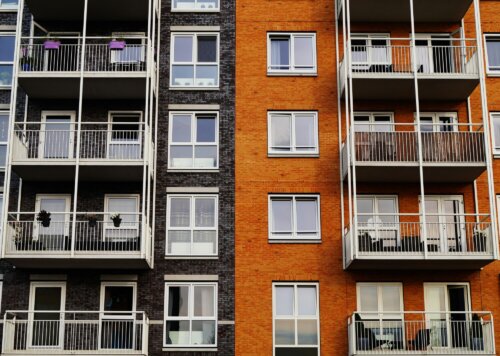Opinion: Fear should not outweigh facts when deciding how to vote for the Bring Chicago Home referendum

Fear should not outweigh facts when deciding how to vote for the Bring Chicago Home referendum
Last week I picked up a flyer at my building in Chatham. The ad features an African American woman fearful of receiving a rent increase due to the proposed change to the real estate transfer tax. It reads “Landlords will raise your rent to cover this new property tax” with a photo of a rent increase notice being slipped under a door. If you live in Chicago, you may have seen this flyer or a similar one targeted to your demographic. This fearmongering is an effort to create and maintain confusion concerning the real issue that Chicago voters are being asked to weigh in on when casting their ballot on the Bring Chicago Home referendum before or on March 19th. If passed, the measure is projected to generate up to 100 million dollars in new revenue to combat homelessness. The rhetoric in the flyer is similar to what we witnessed with the Fair Tax proposed amendment a few years ago, where the potential negative consequences were exaggerated well beyond an honest debate of the issue.
Rather than being a continual property tax, the Real Estate Transfer Tax is a one-time sales tax that is triggered during a real estate transaction when a property is sold. It is typically incurred by the buyer. In Chicago, the current policy is a one-size-fits-all model that taxes all sales at a flat rate. However, a policy that assigns cost burden equally is rarely equitable. The proposed revision offers a graduated tax model where properties of higher value are taxed higher, and property sold for under 1 million will have a tax reduction. There is no automatic change in the cost of building operations which would prompt a rent increase.
Yes, there is a proposed tax increase on sales of properties over 1M dollars, but a tax on transactions is much different than an increase in property taxes in general, as ads often imply. Just a small fraction of buildings experiences a sale each year, and it is wildly speculative to assume that a tax on sales of a subset of buildings will increase rents citywide. Further, the additional tax on property sales over 1 M dollars must be weighed against the enormous cost that all city residents already bear for our homelessness crisis. There is a far greater cost for our inaction.
According to the Chicago Coalition for the Homeless, over 68,000 people are experiencing homelessness and 82 percent of those impacted are people of color. The actual number of people who experience homelessness in a given year is much higher than the point-in-time counts that are often cited, and these numbers have increased in recent years. By not addressing the root problem of homelessness, taxpayers pay an enormous amount of money to mitigate the symptoms. For instance, each chronically homeless person costs the public $35,000 per year. Even short-term homelessness carries high costs, including emergency shelter stays, hospitalizations, police interactions, and jail. Federal programs for those most vulnerable to housing insecurity have not kept pace with the increasing cost of housing. An analysis by the Harvard Joint Center for Housing reports a 6 percent drop in families served by these programs since 2004 while the eligible households without aid grew to 15 million. In short, the baseline scenario of doing nothing to address homelessness is already costly.
Housing advocates have long championed a change in structure to the transfer tax to generate additional revenue that can be utilized to address housing insecurity. In 2018, the Metropolitan Planning Council (MPC) advocated for a graduated increase to the transfer tax as part of Our Equitable Future Roadmap, but mustering the political will to advance any tax increase is challenging. There will always be opposition and an exaggeration of potential negative impacts. The Bring Chicago Home Coalition succeeded in expanding this issue beyond policy experts and politicians to place the decision in the hands of Chicago residents by getting the proposal to a referendum.
No policy is perfect. In a post-COVID real estate market, there are valid concerns about the long-term impact on commercial properties that sit mostly vacant. It will be necessary to have a clear plan for implementation that prioritizes equity as part of the process as well as the outcomes. If passed, this can be addressed in the ordinance language. However, changes in the rental market also impact people. The visibility of homelessness has grown with additional populations in the central business district and also dominating underpasses and public spaces in community areas, like the lakefront. If it is inconvenient for us to see unhoused individuals and families sleeping in the doorways of vacant retail space on State Street, or occupying tents in public spaces, or asking for help on CTA trains and buses, then we need to invest in their care and stability. Bring Chicago Home is not a silver bullet, but it is a practical tool to provide sustainable revenue that, coupled with existing interventions, and the City’s intention to use bonds to fund housing and economic development across the spectrum of need, can make a difference in providing greater housing equity for Chicago residents.
MPC’s Cost of Segregation study, published in 2017, reminded us that the cost of inequity is high. This inequity impacts incomes, educational attainment, and public safety, which in turn costs the Chicago region billions every year. Housing stability is intrinsically tied to each of these issues, and improving all begins with safe and stable housing as a human right for all Chicagoans. The Bring Chicago Home referendum is a chance for all Chicagoans to have a voice about an issue that affects everyone. It’s time for us to have a real debate about the issue rather than diverting to fear-based disinformation. If we aren’t prepared to use a tax on higher-value property sales to address homelessness, what are the solutions and trade-offs we are willing to make? Doing nothing is not a solution that serves anyone.
